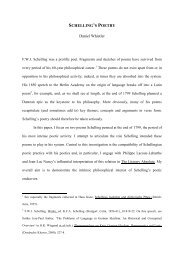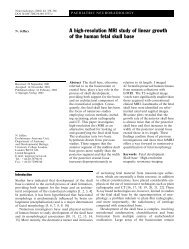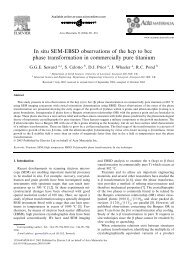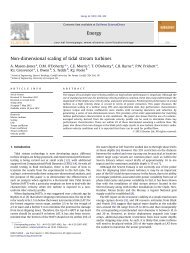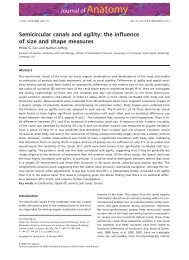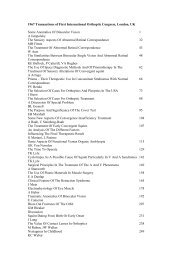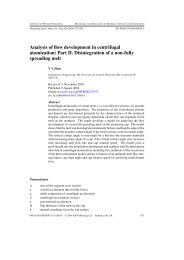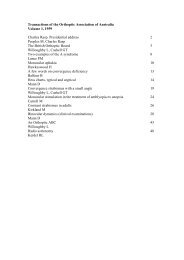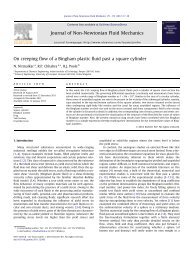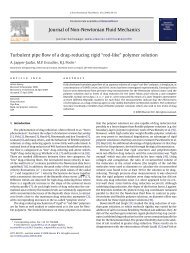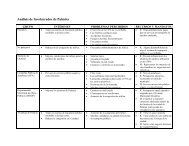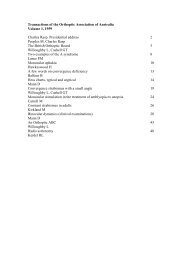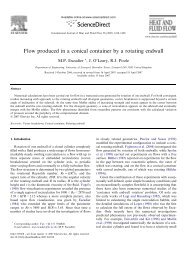The Discipline of Pious Reason: Goethe, Herder, Kant Daniel ...
The Discipline of Pious Reason: Goethe, Herder, Kant Daniel ...
The Discipline of Pious Reason: Goethe, Herder, Kant Daniel ...
You also want an ePaper? Increase the reach of your titles
YUMPU automatically turns print PDFs into web optimized ePapers that Google loves.
gave rise to Ganymed, the Spinozism <strong>of</strong> the poem was very likely to have been<br />
understood (not entirely unjustly) through the lens <strong>of</strong> the neoplatonic tradition (see<br />
further Bell, 1984, pp. 149-51). It is for this reason (as I go on to argue) Prometheus<br />
too was unlikely to have been intended as a Spinozist poem by <strong>Goethe</strong> at the time.<br />
7 In English: On the Doctrine <strong>of</strong> Spinoza in Letters to Moses Mendelssohn. I will refer<br />
to this work as the Briefe.<br />
8 This even seemed strange to Lessing’s contemporaries. An anonymous reviewer<br />
wrote in 1786, ‘To say that the Gods are wretched beings, that man saves himself, that<br />
the Gods do nothing but sleep and we need not revere them—none <strong>of</strong> this yet amounts<br />
to agreeing with Spinoza… That Lessing had found Spinozism [in <strong>Goethe</strong>’s<br />
Prometheus is a] mystery.’ (Quoted in di Giovanni, 1994, p. 68).<br />
9 ‘Zeus… is for <strong>Goethe</strong>-Prometheus an enemy, not a nonentity.’ (Boyle, 1991, p. 168)<br />
10 See note 6 above.<br />
11 In English: Love and Selfhood, A Postscript to Hemsterhuis’ Letter on Desire.<br />
12 I provide more detail about Hemsterhuis and his context in a later section.<br />
13 Although Hemsterhuis wrote in French, he was based in Germany—specifically in<br />
Münster, as we shall soon discover.<br />
14 Such speculation leads Hemsterhuis into some murky waters. He finds it difficult<br />
on this basis, for example, to discriminate against ‘pederasty and other monstrous<br />
couplings <strong>of</strong> men and animals’, for ‘it is evident that these abuses are born naturally<br />
from this universal attractive force’ (ibid, p. 59).<br />
15 I am here closely following Bell, 1984, p. 171.<br />
16 For <strong>Goethe</strong>’s account <strong>of</strong> his relation with the Münster circle, see 1919, I/33:230-45;<br />
1987, 2:709-35.<br />
17 See also Abrams (1971, p. 146) for a similar claim.



